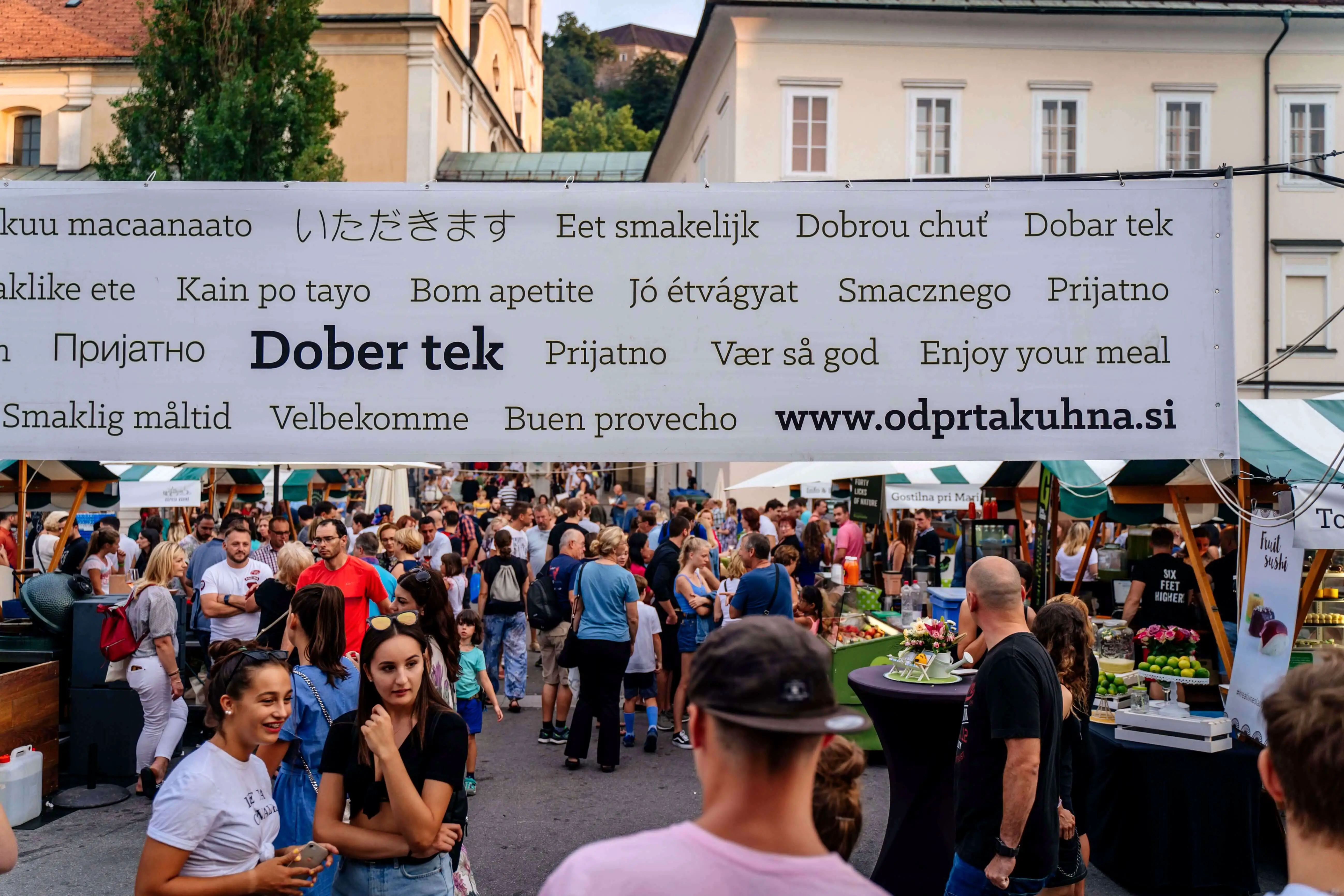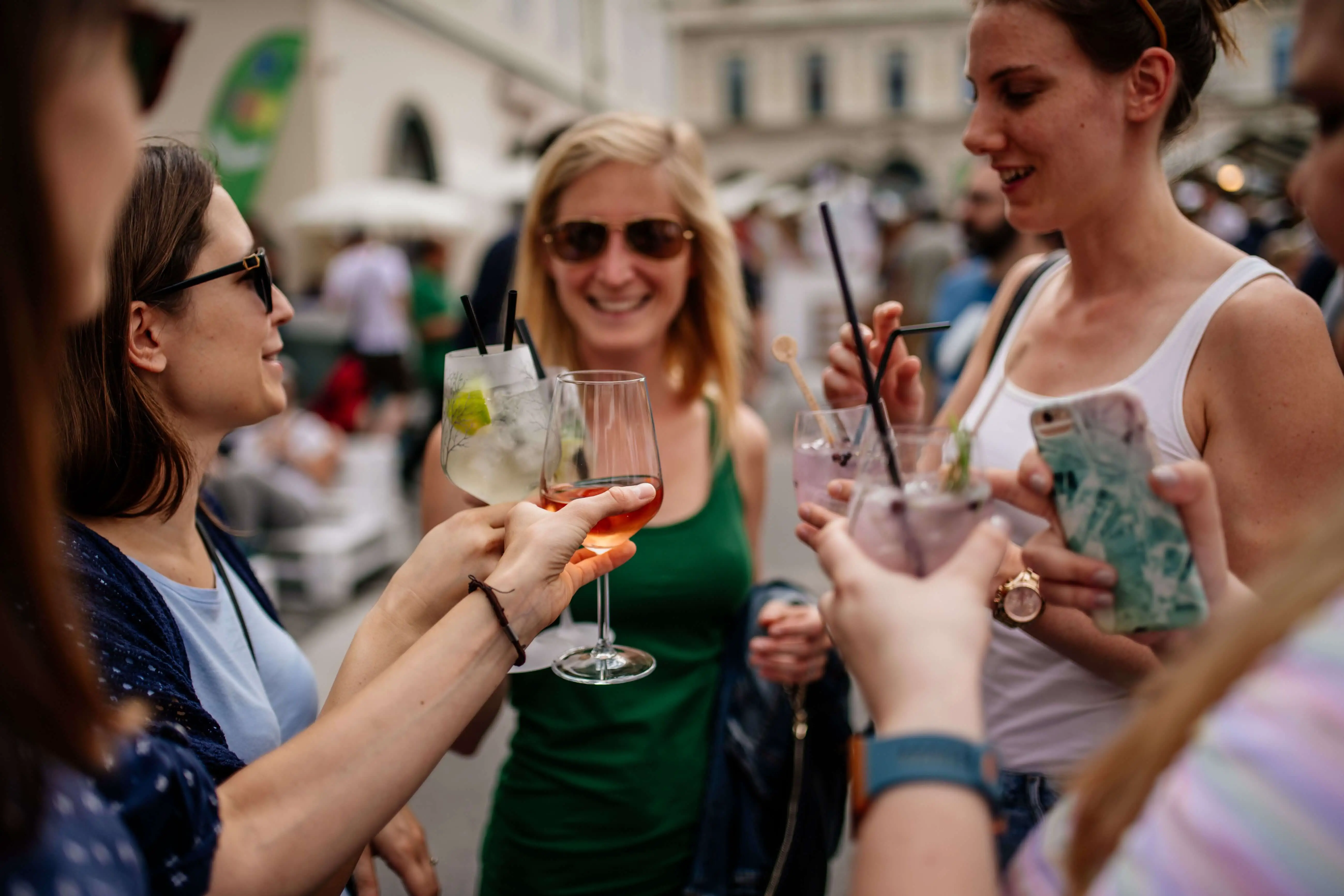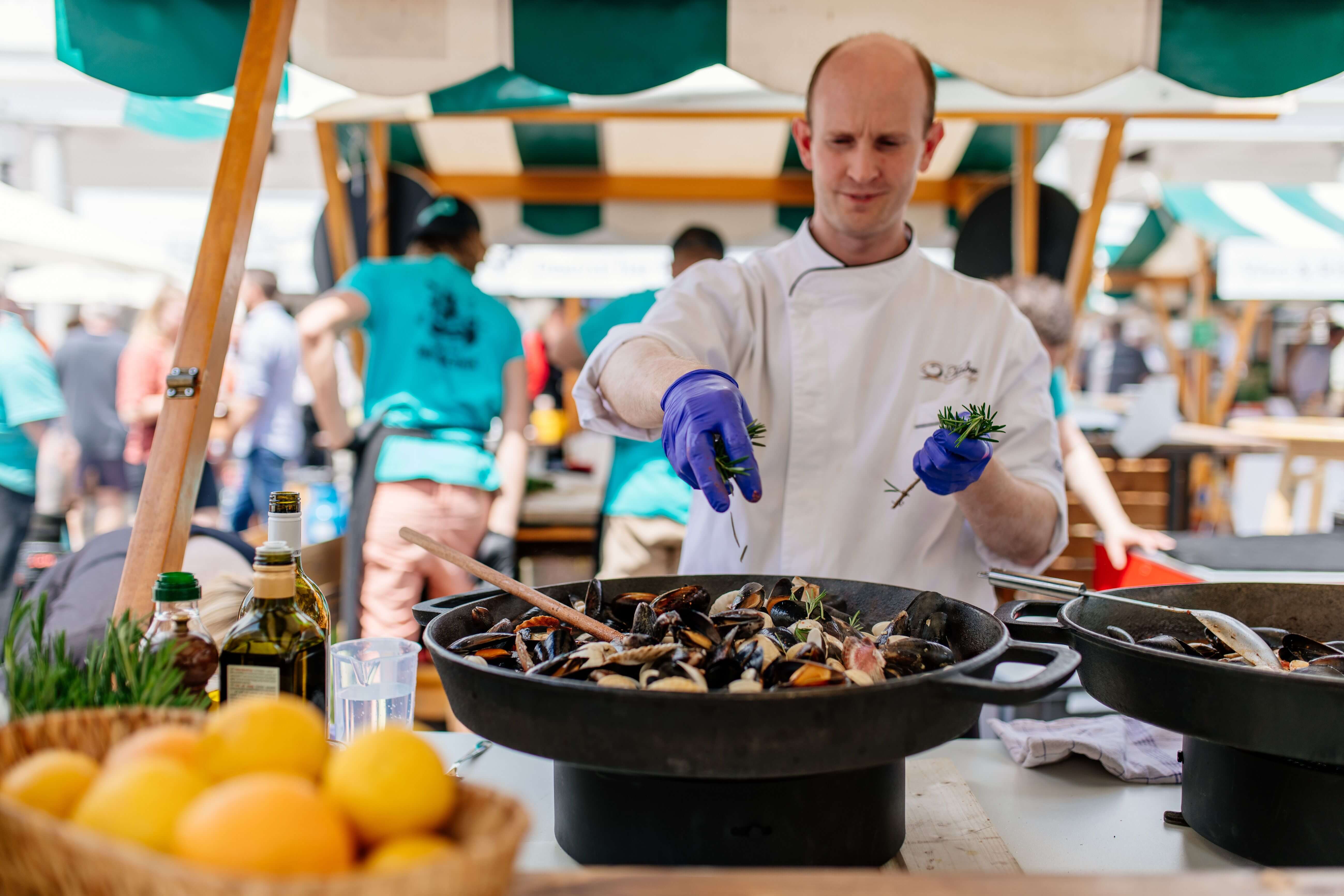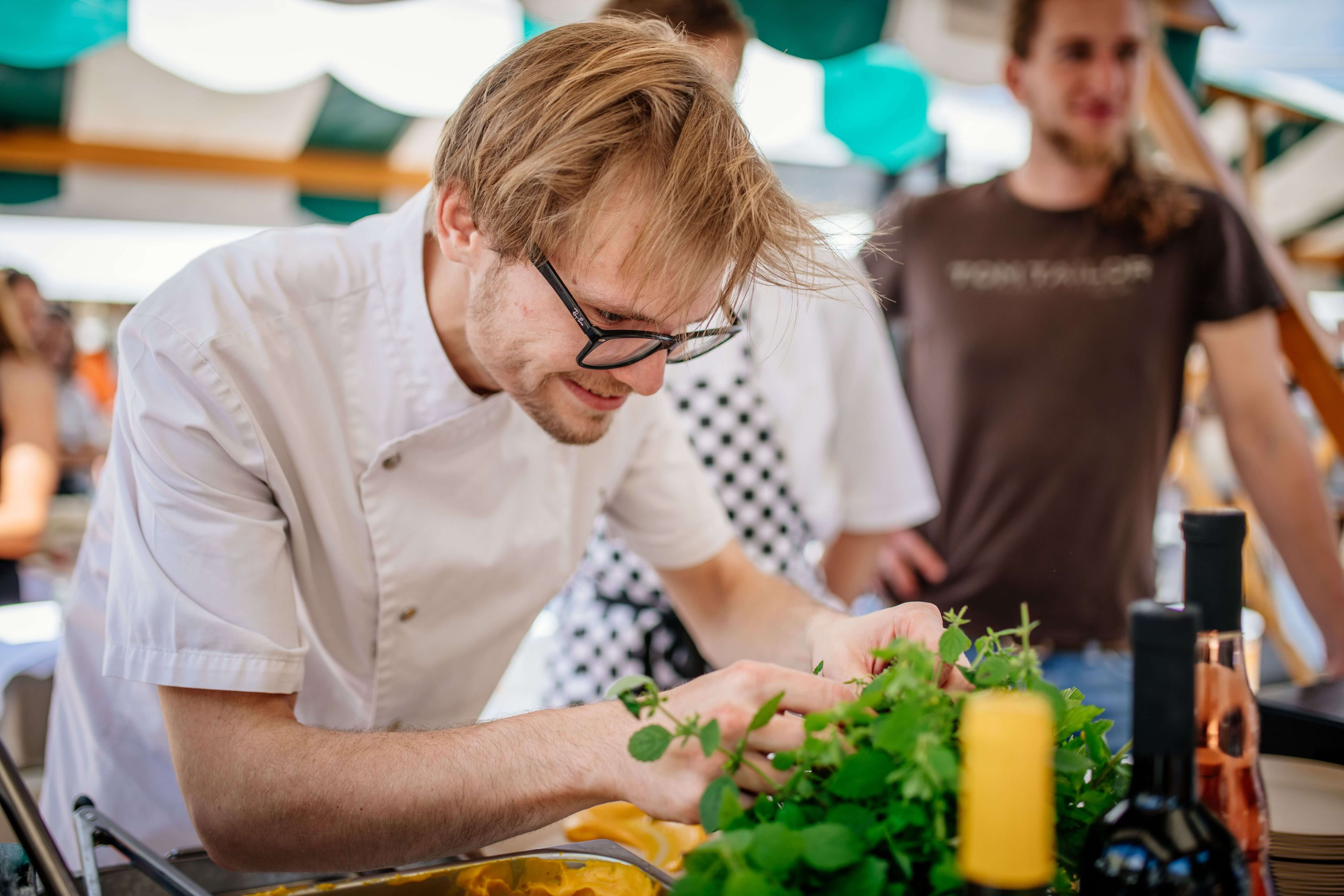Lifestyle
STA, 29 March 2022 - Slovenia recorded 4,412 new coronavirus cases on Monday, over a tenth fewer than the figure reported the same day a week ago as the downward trend continued for the fifth day running. Just one patient with Covid-19 died, Health Ministry has reported.
A total of 186 patients were still treated for Covid-19 at hospitals this morning, two more than yesterday. The figure includes 37 in intensive care, the same figure as reported yesterday.
The National Institute of Public Health estimates there are now just below 39,000 actively infected people in the country, roughly 260 fewer than the previous day but still almost 4,000 more than estimate a week ago.
The 7-day average of new daily cases dropped to 2,710, down 77 from the previous day and down 95 compared to the figure reported a week ago.
The 14-day notification rate per 100,000 people is now at 1,844, up by 11 from a day ago and up by 187 week-on-week.
Monday's cases were picked up from 2,018 PCR tests and 17,966 rapid antigen tests.
All the latest data on COVID and Slovenia
STA, 25 March - The prices of residential real estate jumped by 15.7% in 2021, which is the highest annual rise since 2007, when a 20.4% rise was recorded, the Statistics Office said on Friday. Up the most were the prices of new apartments, which increased by 20.2%.
The prices of second-hand apartments were 18% higher, the prices of second-hand houses went up by 11.9% and new family houses were 3.1% costlier.
The total value of all residential real estate sold last year was up by almost a third compared to 2020 to EUR 1.6 billion. A total of 13,440 houses and apartments were sold, which is about 16% more than the year before, when transactions were the lowest in the last seven years because of Covid-19.
In the last quarter of 2021, residential real estate prices were up by 4.6% compared to the previous quarter, with the prices of second-hand apartments going up by 5.3% and of used houses by 3.3%.
The prices of second-hand apartments went up the most in quarterly comparison in Maribor, by 6.8%, while in Ljubljana they increased by 4.5%.
New apartments and houses cost 12.9% more than in the third quarter, with the prices of new apartments rising by 4.9% and of new houses by 3%.
Transactions with houses and apartments in the last quarter totalled EUR 448 million, which is about 19% more than in the previous quarter and 36% more than in the final quarter of 2020. A total of 3,550 houses and apartments were sold or some 6% more than in the previous quarter and 15% more year on year.
A total of 3,500 second-hand apartments and houses were sold for EUR 430 million, which is up 17% in quarterly and 40% in annual comparisons.
In addition, 96 new houses and apartments were sold for some EUR 18 million, which is double the value of transactions in the previous quarter and down 20% compared to the final quarter of 2020.
STA, 23 March 2022 - Owners of hotels, hostels and self-catering tourist apartments have offered accommodation for around 600 refugees in a public call for applications issued by the Government Office for the Support and Integration of Migrants.
Talks with the 153 applicants are under way and it is expected agreements will be signed this week, the office told the STA.
The call for applications was published in early March and was open for providers who could offer accommodation for at least 20 persons.
As of last week there were more than 3,000 Ukrainian refugees in Slovenia. The majority are staying with relatives or friends, and there are two large groups housed at the Aliens Centre in Logatec and at Debeli Rtič, where the Interior Ministry has holiday facilities for employees.
STA, 21 March 2022 - The municipality of Lendava in north-eastern Slovenia is working towards the restoration of a local railway service to Čakovec in Croatia, which was discussed at a recent meeting between representatives of local authorities. They plan to devise a project and are hoping to secure EU funding.
A railway link between Lendava and nearby Beltinci has been planned for some time, as has a new high-speed line between Zagreb and Čakovec in Croatia. Both sides see that as an opportunity to revive the railway service between Čakovec and Lendava.
This was discussed at a recent meeting between Lendava Mayor Janez Magyar, acting prefect of Croatia's Međimurje County Josip Grivec, and the head of the Union of Croatian Associations in Slovenia, Đanino Kutnjak.
The latter said that they will examine all the options and possibilities to re-establish a railway link between Čakovec and Lendava. He also explained that a tourist train used to run twice a week between the two towns, but the line was abolished a few years ago.
For the time being, the local authorities are considering restoring the tourist train service, which would run from Lendava to Čakovec on Wednesdays and in the opposite direction on Fridays, with additional trains available during special occasions and events in both towns.
STA, 18 March 2022 - The government has established a new centre for Ukrainian refugees at Interior Ministry premises on the Debeli Rtič peninsula, which have been transferred to the Government Office for the Support and Integration of Migrants. On Thursday, 46 Ukrainian refugees, half of them children, arrived at the centre.
According to the head of the government office, Katarina Štrukelj, 80-90 refugees could be accommodated at the centre.
In line with Thursday's government decision, the centre will accept only refugees from Ukraine, most of whom are mothers with children.
Food has already been provided to the refugees, while other necessities will be provided in agreement with the Ankaran municipality, which Štrukelj said had shown great willingness to help.
The municipality will also organise the transport of children to school. Services of the community health centre will be available to refugees.
The children will attend classes together with Slovenian children, but it is not clear yet when they will start going to school.
Refugees that request international protection in Slovenia are registered and processed at the Logatec refugee centre and then transferred to other facilities, Štrukelj said.
The number of refugees from Ukraine is expected to continue to increase. Currently, most of the 3,000 refugees that are in Slovenia are in private accommodation, but depending on the needs the government plans to open centres in Jelšane, Velenje and Celje.
The government's decree, adopted last night, also allows for other state-owned facilities such as student dorms and school centres to be turned into refugee centres if necessary.
Barbara Švagelj, Ankaran deputy mayor, said the municipality was providing different types of aid and was in contact with charities. Citizens will also be urged to help, she said.
Police data shows that between 24 February and 16 March, 1,648 requests for temporary protection were filed by Ukrainian citizens.
STA, 17 March 2022 - All Slovenian cities are above the European average in the use of cannabis, an international study based on wastewater analysis for 2021 has shown. The highest concentration of cocaine biomarker in Slovenia was found in Koper.
The study, published on Thursday by the SCORE group in association with the European Monitoring Centre for Drugs and Drug Addiction, analysed wastewater in 75 European cities from 25 countries, including Turkey.
It looked for traces of four illicit stimulant drugs (cocaine, amphetamine, methamphetamine, MDMA/ecstasy) as well as cannabis, showing the use of most of the drugs returned to the pre-pandemic levels last year after falling the year before.
Slovenia has participated in the study for the fifth year; since 2019 six Slovenian cities or urban areas have been included; Ljubljana, Domžale-Kamnik, Maribor, Koper, Novo Mesto and Velenje.
The port city of Koper had the highest levels of biomarkers of cocaine, ahead of Ljubljana, and Maribor had the lowest. With the exception of Koper, all Slovenian cities ranked below SCORE monitoring average of population-normalised loads.
Velenje in the mid-north-east had the highest concentrations of traces of ecstasy and amphetamine in its wastewaters among the Slovenian cities included in the study.
The urban areas of Domžale and Kamnik north of Ljubljana, Maribor and Koper had amphetamine below the quantification level in all samples of wastewaters. The capital Ljubljana had the highest levels of methamphetamine and THC residues.
While all Slovenian cities were above average in terms of THC concentrations, they were deep below average in methamphetamine. The most popular drugs are THC and cocaine, according to the study.
Over the past five years, amphetamine and MDMA (ecstasy) levels dropped in Ljubljana, with the exception of the high level of MDMA in 2020. The trend is similar for cocaine as methamphetamine and THC use appear to be constant.
Cocaine and THC use has been on the increase in Maribor and Domžale-Kamnik as the latter has been seeing a falling trend when it comes to amphetamine. Velenje saw an increase in cocaine levels in 2021.
The last few years have felt a lot like Lucy, Charlie Brown and the ball every time we suggest that things are going to be easy and fun again in terms of travel, tourism and hospitality in Slovenia. It’s been miserable, but now spring’s here and it seems the only thing remaining from the days of lockdowns and QR codes are masks in stores. Summer could even be normal, albeit with war in Europe. But who knows?
So it’s best to seize the day and take advantage of any events and opportunities for company and fun that come along, and what better way to launch into a spring/summer season of enlightened or frantic hedonism than to head to Ljubljana this Friday, March 18, and dive into Open Kitchen with an appetite and friends. The weather Is forecast to be good – 0% rain while the market’s open, and a high of 12°C. Perfect for getting dressed in something nice and adding to the festive nature of the event.



But what is Open Kitchen, and why should you consider making plans for lunch, dinner, supper or a snack if you’ll be in the small, green, perfectly formed, hidden gem, etc Slovenian capital of Ljubljana? Simply put, Open Kitchen brings dozens of stalls selling food and drink for varied budgets and tastes to Pogačarjev trg, the square next to the main market and cathedral, right by the river and Plečnik’s Arcade, not far from all the popular bridges.
It’s easy to find and even easier to enjoy, with all the food and drink coming from local producers and providers. From top restaurants to burgers, Thai food to Lebanese, coffee to craft beer, ice cream to cakes, discerning vegan to ravenous carnivore, day drunk to no-carb fanatic, you’ll find them all at Open Kitchen, along with a cross-section of Ljubljana residents, workers and visitors.


So if you’re in Ljubljana this coming Friday, or any other Friday until the end of summer, just follow your senses to the delicious smells and lively sounds of Open Kitchen, where you’ll have a very good time.
STA, 14 March 2022 - Administrative units (upravne enote) will return to business as usual after the government on Monday revoked a decree that severely restricted in-person operations by requiring that customers schedule appointments for services such as issuance of documents.
"Clients will be able to submit applications without having to schedule appointments, although the option of scheduling will remain," the Government Communications Office said.
Access to administrative units has been severely restricted for much of the pandemic, leading to long waiting times.
With most other coronavirus restrictions now lifted or relaxed, there have been complaints in recent weeks about the continued inaccessibility of administrative services.
The decree will enter into effect a day after it is published in the Official Gazette, presumably on Tuesday.
STA, 9 March 2022 - Following last year's on-line edition, the Ljubljana Documentary Film Festival will be organised in hybrid form this year to feature 22 feature-length documentaries and three shorts between 9 and 16 March.
The documentaries, five of which will be vying for the title of the best film dealing with human rights, will be screened at the Cankrajev Dom arts centre, while roughly half of them will also be available for on-demand streaming.
Cankarjev Dom director Uršula Cetinski has said the hybrid solution would help bring viewers back into the cinemas while at the same time providing access to audiences outside of Ljubljana.
The docs running for the Amnesty International Slovenia Award - hand-picked by programme director Simon Popek, who stressed these were not the only films dealing with human rights this year - include The First 54 Years. An Abbreviated Manual for Military Occupation, an exploration of the Israeli-Palestinian conflict by Avi Mograbi.
The Monopoly of Violence, which David Dufresne started shooting during the yellow vests protests in France, Nuclear Family, a take on US aggression of the past century by Traviss and Erin Wilkersonm, Children of the Mist by Ha Le Diem, who sheds light on child marriage in Vietnam, and Reconciliation by Slovenia's Marija Zidar are also in the running.
The latter, a Slovenian, Serbian, Kosovar, Montenegrin co-production, which deals with deep-rooted patriarchy in the Albanian highlights, will open the festival.
Other topics explored in the remaining segments of the festival include workers' struggle in modern capitalism, a theme of Srdjana Kovačević's Factory to the Workers as well as of a panel debate to be organised in cooperation with the Ljubljana-based Institute for Economic Democracy.
Festival visitors will gain insight into teaching methods for refugee children in a small German town via Maria Speth's Mr. Bachmann and His Class, the life of prisoners in Slovenia's Dob prison as explored by Boštjan Korbar and Matjaž Pikalo, and the skiing enthusiasm of Afghan girls as portrayed in another Slovenian co-production, Melting Dreams by Haidy Kancler.
The Myths, Icons, Media section will feature a documentary by Tosca Looby on Australia's sole woman prime minister so far, which Popek argued portrayed the toxicity of the political environment and fitted well with the pre-election period in Slovenia. A retrospective will honour the 100th birthday of documentary film giant Jonas Mekas.
The jury of the festival is comprised of Dutch director Margje de Koning, Slovenian director and journalist Siniša Gačič and Kaja Atanasova of Amnesty International Slovenia, which will also organise a panel of the rights of Palestinians as part of the accompanying programme. A workshop for documentary film makers will be held as well.
See the full programme and get tickets at the official Ljubljana Documentary Film Festival website
STA, 9 March 2022 - Close to 40,000 teachers and other staff at schools, kindergartens and universities across Slovenia are expected to go on strike on Wednesday to demand higher wages as well as bonuses for extra work during the Covid-19 epidemic.
Due to the general strike, schools and kindergartens will be closed but day care will be organised for the youngest children whose parents have nowhere else to take them.
Lectures, research and other activities will also be suspended at higher education institutions. "The only exception is pre-scheduled exams and diploma presentations, clinical training vital to patients' health and meetings to discuss strike demands," the Higher Education Union has said.
Staff at kindergartens and primary and secondary schools will strike at their workplace and their union SVIZ urged them to gather in front of schools or in schoolyards at five minutes to noon and turn their backs in a show of discontent.
SVIZ declared the strike after its members as well as non-teaching staff voted overwhelmingly in favour of the industrial action.
They set eight strike demands, the most important of which they say is signing a deal with the government to get paid for the extra work and exposure to virus during the Covid-19 epidemic, and higher wages for all staff working in education to make up for the disparities created after other sections of the public sector secured rises.
The government says the strike is unwarranted arguing that the average wage bracket of teachers is above that for groups of employees such as soldiers, police officers and nurses which had already secured rises.
On the eve of the strike, Education Minister Simona Kustec said they were willing to discuss systemic solutions and reform of the public sector pay system with the unions but the government had made a commitment not to place additional systemic burdens on the public finances ahead of the election.
The ministry also said that kindergartens, primaries and music schools received more than EUR 149 million for Covid-related bonus payments from October 2020 to June 2021.
Considering the great number of institutions where the staff opted for the strike, SVIZ boss Branimir Štrukelj says the industrial action "cannot pass off without causing problems in particular for the parents of kindergarten and primary school children".
He appealed to parents to support them in their demands, while denouncing the Education Ministry's instruction to headteachers that they should guarantee a minimum teaching process during the strike as unlawful. Unlike in healthcare, the right to strike in education is no way limited, the unionist said earlier this week.
However, the ministry invoked an article in the strike act which says that public services need to provide minimum activities during a strike necessary to keep people and property safe and allow work elsewhere to go on.
SVIZ says the strike would continue until their demands are met, although schools will only be closed on Wednesday. They are planning to meet next Monday to decide whether to resume the action under this government or break it off and resume talks with a new government formed after the 24 April general election.
STA, 8 March 2022 - Calls against a deteriorating situation of women in society will be in the spotlight of this year's International Women's Day events in Slovenia. A number of events are planned, including a rally in Ljubljana at which NGOs and trade unions will highlight inequalities in various fields and call for respecting women's rights.
The rally will call for a decent minimum wage as well as for teaching about gender stereotypes at school and expanding screening programmes to more age groups.
Calls to parties to field women candidates in their traditionally electable districts for the April general election will also be made, Women's Lobby head Ana Kalin has told the STA.
"New parties, which still don't know in which districts they can win a seat in parliament, should make sure the share of women on lists of candidates is 50%," she says.
It is important that Slovenian law sets down quotas, but this is not enough to ensure that more women are elected to parliament, she says.
This issue will be debated by National Council, the upper chamber of parliament, which will host a panel on women's participation in politics.
At the Ljubljana Faculty of Arts, the Days of Gender Equality will open featuring a number of events focussing on equal rights and opportunities until 13 April.
The City of Women will give out the Women about Women award, which is conferred on "women for fighting for a better world".
The STA and the commission for equal opportunities in science, a Ministry of Education advisory body, will host an online discussion on women scientists in the media.
Work-life balance will be in the focus of an event organised by the ZSSS confederation of trade unions to present a review of this concept in collective bargaining agreements.
Minister Janez Cigler Kralj said the view of the Ministry of Labour, Family, Social Affairs and Equal Opportunities is that the "acquired women's rights are untouchable" while the ministry also gives special attention to measures leading to a more equal labour market, including work-life balance.
The war in Ukraine has strongly affected the lives of women, which calls for being even more aware of the importance of women in society, he added in a message.
Human Rights Ombudsman Peter Svetina on the other hand said education and awareness raising is key to enhance gender equality as women are still prevalent in low paid jobs, there are too few in leadership positions, while they also often face violence.
He welcomed last year's redefinition of rape to reflect only-yes-means-yes international standards, urged safeguarding the rights previous generations acquired and cautioned against "shifts towards retraditionalisation".
Mira, the women writers' section of the Slovenian PEN, warned that female writers are not equally represented in the curricula and the texts at high school leaving exams. "Teaching literature without including female authors is misleading and wrong," reads its 8 March message, signed also by several well known authors and artists, members of PEN, the Association of Libraries and the Women's Lobby.
The Nurses and Midwives Association highlighted the fact that in Slovenia, women account for over 85% of all employees in this sector while they have little say in deciding on health policy. Apart from improving working conditions and pay, a better work-life balance should be secured and career development enabled.
In a statement before International Women's Day, SOS Telephone, a helpline for victims of domestic violence, said that women's rights are constantly violated, which can lead to femicides.
Statistics show that an average women in Slovenia, one of the four EU members with more men than women, was 45.1 years old in 2021, almost 3 years more than an average man and almost 2 more than in 2011.
Nearly 30% of women in Slovenia have completed tertiary education; the share has been larger than the share of men with tertiary education ever since 2011.
Life expectancy for girls born in Slovenia in 2020 is 83.4 years, which compares to 77.8 years for boys.
Early Statistics Office figures show that an average monthly gross pay in 2020 was just over EUR 1,900 for women and EUR 1,955 for men.
Preliminary Eurostat figures meanwhile show that the pay gap in Slovenia in 2020 was among the narrowest in the EU-27, at 3.1%.
The initiative to celebrate a day dedicated to women was given at an international conference of socialist women in Copenhagen in 1910 by German communist Clara Zetkin.
The day was first marked in 1911 in Austria, Germany, Switzerland and Denmark, but on different days. The same year it was marked in the Slovenian city of Trbovlje.
In 1977, the UN General Assembly declared 8 March International Women's Day in remembrance of the day in 1857 when textile workers in New York protested against inhumane working conditions and low wages.




